The Ministry of Defence has launched a new cyber recruitment scheme intended to speed up entry into specialist armed forces roles, in order to strengthen the UK’s digital defences and address increasing cyber threats.
The scheme, which aims to have new recruits fully operational by the end of 2025, reduces basic training from ten weeks to around one month, followed by three months of cyber-specific training at the Defence Cyber Academy in Shrivenham.
Described in the press release as a “new front line” of modern warfare, cyberspace is an arena in which the UK must protect its networks and services from “more than 90,000 cyber-attacks… over the last two years.”
Recruits who complete the intensive programme will begin working at the digital headquarters in Corsham or as part of the National Cyber Force, helping to defend against adversaries who exploit emerging digital vulnerabilities.
The Secretary of State for Defence, John Healey MP, said:
“Fast tracking cyber warriors into our military will help ensure our Armed Forces are better equipped to face our adversaries in the 21st century and defend the country from the changing threats we face.”
Meanwhile, Minister for the Armed Forces Luke Pollard MP stated:
“With more than 90,000 cyber-attacks on UK military networks over the last two years, it is essential that we step up our cyber defence, fast-tracking the brightest and the best cyber specialists to help protect the UK and our allies.”
Successful candidates will start on a salary of over £40,000, with additional skills-based pay as they develop more expertise. According to the announcement, cyber recruits will join the Royal Navy and Royal Air Force initially, with the British Army participating in the new programme from early 2026.
The press release also highlights broader government measures to improve armed forces recruitment and retention, including “the largest pay rise for service personnel in over 20 years,” reforms to speed up the application process, and proposed legislation to create an Armed Forces Commissioner.
At the UK Defence Journal, we aim to deliver accurate and timely news on defence matters. We rely on the support of readers like you to maintain our independence and high-quality journalism. Please consider making a one-off donation to help us continue our work. Click here to donate. Thank you for your support!



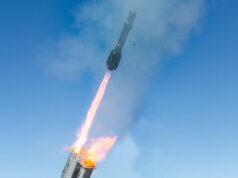
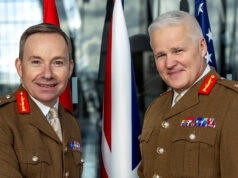



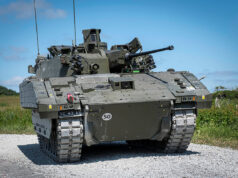
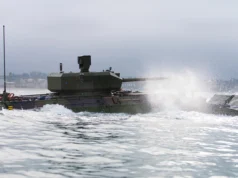
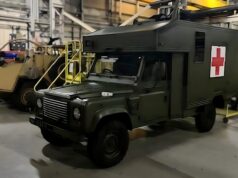


“Fast tracking cyber warriors into our military will help ensure our Armed Forces are better equipped to face our adversaries in the 21st century and defend the country from the changing threats we face.”
Cyber Warriors ???!!! Jesus Christ LMFAO…With the identified and seemingly acceptable lack of fitness I’d prefer to call them Armchair Warriors.
The reality is china employs around 3 million political warfare operatives in its government agencies to attack the west, political and cyber warfare are just as likely to win or loss you a war as the more kinetic domains and the west needs to be more active in fighting in these Domains. In the end you need different people for different things and your marine commando will have an entirely different level of fitness to your 40 year old Navy nurse… and quite frankly both of them would have been left for dust by some cultures in which absolutely peak fitness was a constant requirement to survive.
Power up your metabolism with our ZenKeto. The carefully curated blend of ingredients is designed to rev up your metabolic rate, encouraging efficient calorie burning and supporting your journey towards increased energy expenditure and
fat loss…… Click On MY Name
Bloody hell Grandad. Showing your age here mate.
We are currently in a cyber war with Russia, China, North Korea, Iran.
1 cybersecurity expert is worth more than a whole platoon of infantrymen.
You don’t know me nor my background so I will let that slide.
I will however stand by the point I was making which was my amusement at the phrase “Cyber Warriors” used in the blurb.
They will hardly be warriors will they – except in their own minds of course.
It is extremely funny.
Agreed mate, my thought process also! Not so much a warrior but a techy ninja! Anyway who does 10 weeks basic nowadays anyway, serious question as cutting even that bare minimum to 4 seems a bit crazy no matter your role!
As long as they are fit enough in the brain to understand the threat its good enough for me! They do their fighting with a keyboard and mouse in an office, it’s not like they are going to be around a front line where they may find themselves in a shooting match if things go wrong It makes sense to recruit to fill the specific role and its requirements.
This is total BS. Remember “you are an infantryman first, your trade second”? Oh look at me, four weeks mincing round wearing trainers cos boots hurt my feet, then back indoors in front of a screen wear I feel safe and included. I really do give up.
Is the 40 year old navy or RAF nurse and infantryman first ?
Infantry, as you may be aware, are soldiers. The RAF has some infantry. The navy and air force cannot be regarded as infantry. They are too soft, fat and do not like living outdoors for weeks on end. They also have to be reminded that the sharp end of the rifle is the bit you point at an enemy. As for nurses? No comment, you might be one.
That was my point, this is a recruitment drive for people who sit at a desk, not infantry, different roles different needs.
I do not know you, or your background. Not that I am interested either tbh. However, joining an army, in this case The Britani Jundi? Well it means you are a soldier first and foremost. That means you need training, you know what that is? Getting dirty, being shouted at and hurty, hurt. You basically strip the civilian and build a soldier. One who can strip a rifle in the dark, stand stag in a frost and stand to at 5am. Now imagine these computer geeks with four weeks training find themselves in a war zone. Not in an air conditioned office in London. See. not all cyber warfare is based around mainframes is it? Study Ukraine and the Russians really good countermeasures deployed, in the field ( that’s the place where things go bang ) See where this goes? Sure you can. You cannot call an undertrained cyber geek a soldier, its an insult and it does not stand up to scrutiny. But your Russian cyber geek two miles to the rear? If he is attacked? He knows how to use an AK to defend himself and his kit. THAT just might mean he can carry on being an effective part of a fighting unit. Will stop there, will not comment anymore either. If you do not understand? You are just baiting.
A few ways of looking at this for me.
I think if one has a greater understanding of the units involved and their place in Defence this might make more sense?
Most of our Cyber units are not in any way field units, especially, and obviously, those that are Tri service, or in the RN and the RAF, and have a UK home based role.
They don’t need fighting skills as much as a field unit.
And John is right, some Cyber roles I believe are more Field Army orientated.
And if there is cross posting to those units, say if you’re from the Royal Signals, then the lack of field training will indeed be an issue?
I’m in the RAF but I’m not soft and I’m not fat. I flew Fast Jets on the Front Line for 15 years, so I reckon I’m more highly trained than you John. Be careful with your generalisations
Its time you arrived in the 21st century, we are only a quarter of the way through it… Cyber and conventional warfare are totally different beasts. I’m not even convinced the military should be running this, in fact none of the legacy services stands out as being appropriate, it probably deserves a service in its own right.
As I have mentioned on other threads, I see the value of this.
But respect Grizz and Johns view.
Fast tracking is another word for lowering the entry standard. Just look what happened to the University entrant fast track system into the British Police Service. Six constabularies are in special measures for poor performance.
Vital for national defence & security for sure. Many of these roles are more “Boffin” than combat.
But so is an adequate+ armed forces, something many believe is a long way away after reckless cuts in recent decades in the face of rising threats.
I wonder how quickly we could raise say 100,000, or even 50,000 troops if we found ourselves in dire need(above reserves I mean)? Would we have the small arms in storage or would we have to buy abroad when everyone else is also demanding the kit?
This wilful lack orf preparedness could be our undoing while the traitors who’ve implemented all the cuts flee for safer climes.
40k! Is not going to get many top boffins in.
Make it 100k and you got me, I will dedicate my remaining years to the country.
Neil, £40k is the starting salary for junior rank cyber operatives, not the more senior ‘boffins’. Thats a good rate for the public sector. Starting salary for everyone else is £25.2k (from start of training).
I can’t imagine £100k for a Private soldier is affordable.
Not sure why we have to have these people actually in the military! 4 weeks basic then tech training, seems more like a tick box ex to say they are military. They could quite easily be formed into a civil service type core, but with a more disciplined outlook and a contract to match! These people are worth their weight in gold, and in the current and future climate, essential to the battle space.
Probably protectionism.
I doubt all of them will be worth their weight in gold… 🙂
Airborne, that is the key question! I suspect that you’re right about box-ticking. If these new roles are going to be fully part of the armed forces, and have to be ready to deploy to anywhere and operate in the field, then they need to be trained accordingly. But if they are going to be doing computer stuff in an office somewhere far from the front line, why do they need to be in the military at all? A civil service model which combines civilian working conditions with established government procedures for controlled access to sensitive material would seem to be far more appropriate.
Perhaps the explanation is simply that it’s a rather clumsy sales pitch. Maybe they want to sell the image of being a “warrior” to attract recruits while simultaneously lowering the barriers to entry for anybody with the right technical skills.
Spray them silver & call them “Cyber men”?
“Men” is pushing the envelope mate.
1st cybernetic brigade ! Cool 😎.
🫶✌️
Cybernerd !!! Wtf 🤷